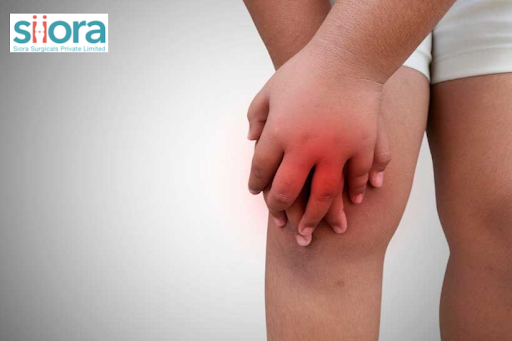A Guide to Idiopathic Juvenile Arthritis

You must know that arthritis not only affects adults but is also seen in children. The form that affects children is known as idiopathic juvenile arthritis. This is what we are going to discuss in the post.
Arthritis is a condition that affects the cartilage in our joints. Cartilage protects our joints from impacts. If we talk about adults, wear & tear in cartilages over time is the cause of arthritis. Whereas in the case of juvenile arthritis, hereditary and environmental factors may cause juvenile arthritis.
Arthritis has no cure, and the treatment is only provided to improve symptoms and the quality of life. In most severe cases, surgery to repair or replace the joint is performed.
To get an international standard quality range of orthopedic devices, find experienced suppliers of Orthopedic Trauma Implants.
Juvenile Idiopathic Arthritis – An Overview
Juvenile arthritis is a common joint problem that affects children below 16 years of age. This form of arthritis can cause persistent joint pain along with swelling and stiffness. In certain cases, several severe complications may also occur.
Juvenile idiopathic arthritis can affect one or many joints at a time. The diagnosis of the condition is not easy, and it requires experience along with multiple diagnostic tests to confirm the condition.
Symptoms of Juvenile Arthritis
Here are some of the common signs and symptoms of the condition:
-
Joint pain that is commonly experienced in the morning or after a nap
-
Swelling in joints commonly the knee joint
-
Joint stiffness
-
High fever
-
Swelling in the lymph nodes and rashes on the trunk
Causes of Idiopathic Juvenile Arthritis
Juvenile arthritis occurs when the immune system starts attacking its body and damaging cells and tissues. The reason for this is not known but hereditary and environmental factors are believed to play a role.
Diagnosis of Idiopathic Juvenile Arthritis
Many problems may cause joint pain in children and hence, the diagnosis of juvenile arthritis is not easy. Multiple diagnostic tests to confirm the condition and rule out other possibilities are required. Several blood tests that may be ordered include:
-
Erythrocyte Sedimentation Rate (ESR)
-
C-reactive Protein
-
Antinuclear Antibody
-
Rheumatoid Factor
-
Cyclic Citrullinated Peptide (CCP)
To exclude other conditions, an X-ray examination may also be performed. An x-ray report may confirm fractures, tumors, congenital defects, or infections. In many cases of juvenile idiopathic arthritis, blood tests may not show any significant abnormality.
Treatment of Idiopathic Juvenile Arthritis
The treatment of juvenile arthritis is provided to improve the quality of the physical and social life of the child. Arthritis has no cure, only its symptoms can be managed with the treatment provided.
Medicines like non-steroidal anti-inflammatory drugs and disease-modifying antirheumatic drugs are prescribed to improve symptoms. In certain cases, biologic agents like tumor necrosis factor, and corticosteroids are recommended.
Physical therapy also plays a vital role in improving the strength and flexibility of the affected joints. In severe cases, surgery may be the last option.
For the content source, contact Siora Surgicals Pvt. Ltd., an experienced orthopedic device manufacturer in India. Besides this, to explore a huge range of medical products and supplies, register your visit to the Medical Trade Show in Germany from 13-16 November 2023.
- Art
- Causes
- Crafts
- Dance
- Drinks
- Film
- Fitness
- Food
- Oyunlar
- Gardening
- Health
- Home
- Literature
- Music
- Networking
- Other
- Party
- Religion
- Shopping
- Sports
- Theater
- Wellness
- IT, Cloud, Software and Technology


